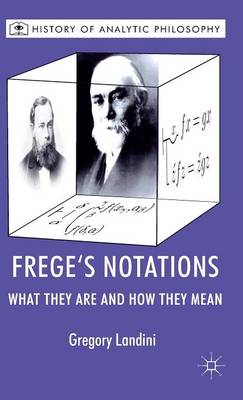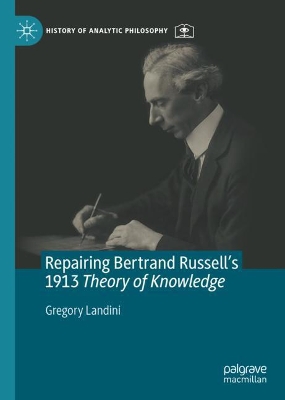History of Analytic Philosophy
3 total works
A new approach to reading Frege's notations that adheres to the modern view that terms and well-formed formulas are any disjoint syntactic categories. On this new approach, we can at last read Frege's notations in their original form revealing striking new solutions to many of the outstanding problems of interpreting his philosophy.
Leading scholars in the field offer new ways of looking at Wittgenstein's papers as well as clear, comprehensive and original philosophical interpretations of them. The volume includes two texts by Wittgenstein previously unpublished in English.
This book repairs and revives the Theory of Knowledge research program of Russell’s Principia era. Chapter 1, 'Introduction and Overview', explains the program’s agenda. Inspired by the non-Fregean logicism of Principia Mathematica, it endorses the revolution within mathematics presenting it as a study of relations. The synthetic a priori logic of Principia is the essence of philosophy considered as a science which exposes the dogmatisms about abstract particulars and metaphysical necessities that create prisons that fetter the mind. Incipient in The Problems of Philosophy, the program’s acquaintance epistemology embraced a multiple-relation theory of belief. It reached an impasse in 1913, having been itself retrofitted with abstract particular logical forms to address problems of direction and compositionality. With its acquaintance epistemology in limbo, Scientific Method in Philosophy became the sequel to Problems. Chapter 2 explains Russell’s feeling intellectually dishonest. Wittgenstein’s demand that logic exclude nonsense belief played no role. The 1919 neutral monist era ensued, but Russell found no epistemology for the logic essential to philosophy. Repairing, Chapters 4–6 solve the impasse. Reviving, Chapters 3 and 7 vigorously defend the facts about Principia. Studies of modality and entailment are viable while Principia remains a universal logic above the civil wars of the metaphysicians.


